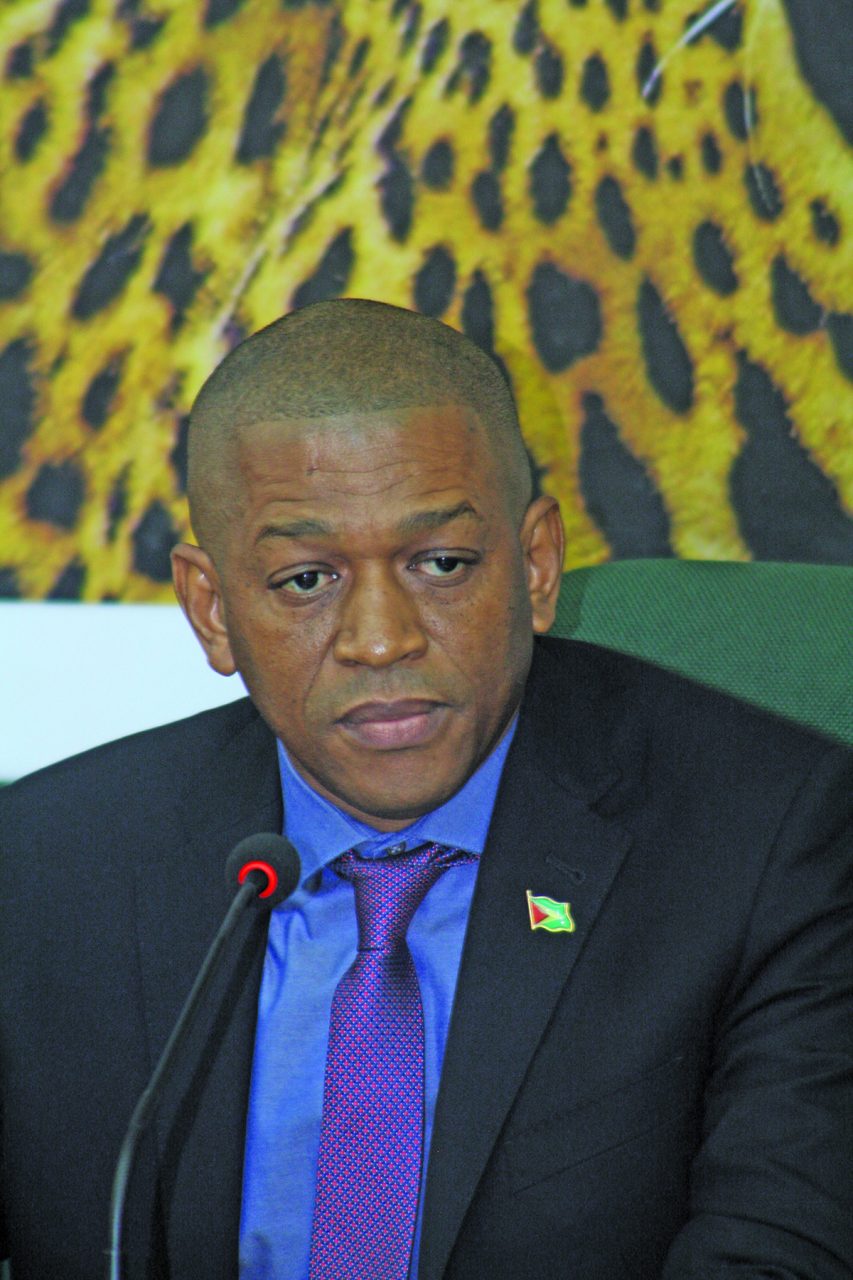…based on needs assessment done on TVET institutions
A prevailing concern is that lack of capacity will see locals losing out on technical jobs arising from the oil and gas sector. But armed with a needs assessment report, the Energy Department is looking to fix that.

Dr Mark Bynoe
This was explained at a press conference held on Friday by the Department at the Ministry of the Presidency. According to Head of the Department, Dr Mark Bynoe, they are working in collaboration with the Council for Technical and Vocational Education Training (CTVET) and its Director, Floyd Scott.
“We’ve been working very closely with the Council and those entities that have been coming trying to set up parallel structures; we’ve been encouraging them to set up partnerships with the TVET institutions,” he explained.
Dr Bynoe related that they are considering initiating two pilot programmes within the TVET institutions. He also referenced the Board of Industrial Training (BIT) and the University of Guyana, which are also building capacity for the sector.
“The University of Guyana has recently launched their own petroleum programme. We are also working with the Board of Industrial Training. And one must recall the Public Service Ministry still provides opportunities for Guyana to build its capacity as we move towards the oil and gas sector,” Dr Bynoe stated.
In 2016, the Government had signed an agreement that would see the Caribbean Development Bank (CDB) contributing US$14 million towards TVET institutions. Another agreement to develop TVET worth US$83,000 was signed between Guyana and the Organisation of American States (OAS) last year.
This year, the University of Guyana also launched its Masters and Associate of Science in Petroleum Engineering programmes.
TVET
In March of this year, CTVET Director Scott had revealed at a forum in Albouystown that Guyana was missing hundreds of Occupational Health and Safety (OHS) skills from its technical and vocational curriculums.












